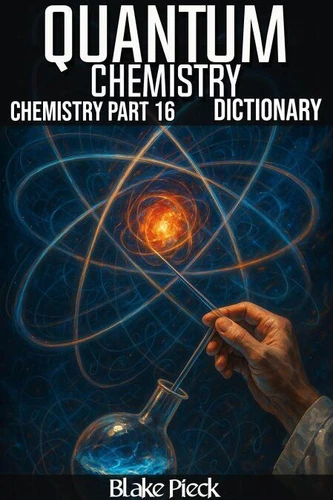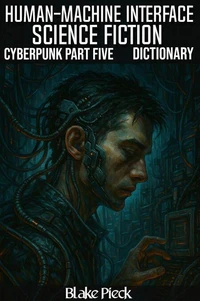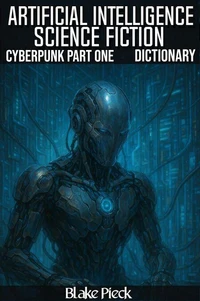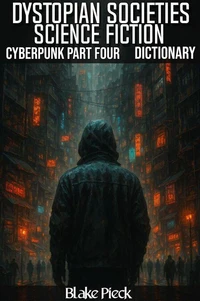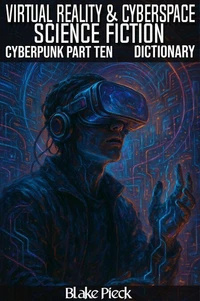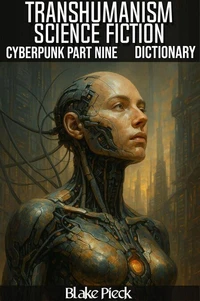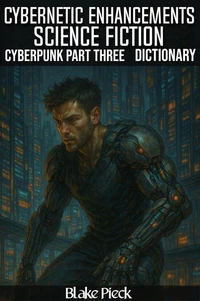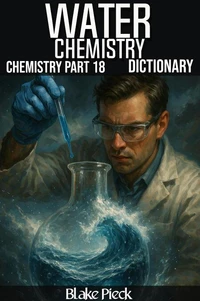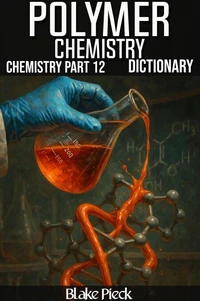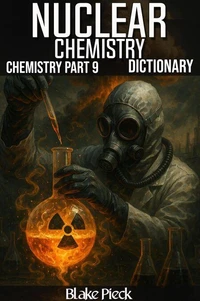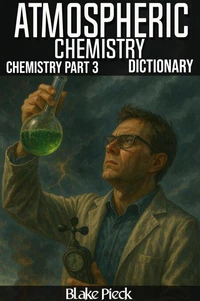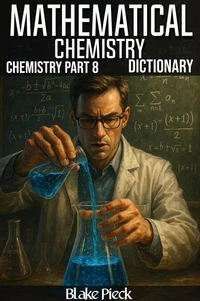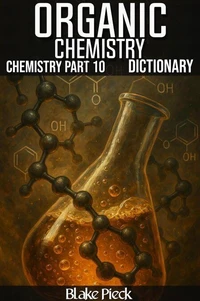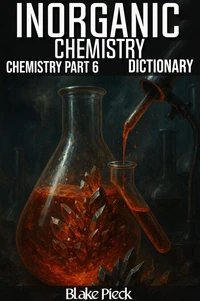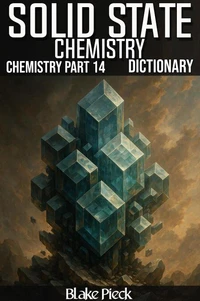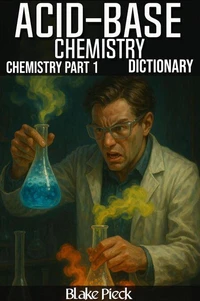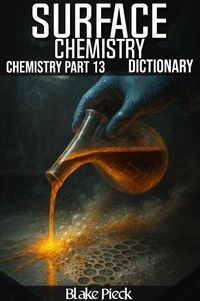Quantum Chemistry - Chemistry Part 16 Dictionary. Grow Your Vocabulary
Par :Formats :
Disponible dans votre compte client Decitre ou Furet du Nord dès validation de votre commande. Le format ePub est :
- Compatible avec une lecture sur My Vivlio (smartphone, tablette, ordinateur)
- Compatible avec une lecture sur liseuses Vivlio
- Pour les liseuses autres que Vivlio, vous devez utiliser le logiciel Adobe Digital Edition. Non compatible avec la lecture sur les liseuses Kindle, Remarkable et Sony
 , qui est-ce ?
, qui est-ce ?Notre partenaire de plateforme de lecture numérique où vous retrouverez l'ensemble de vos ebooks gratuitement
Pour en savoir plus sur nos ebooks, consultez notre aide en ligne ici
- FormatePub
- ISBN8231740536
- EAN9798231740536
- Date de parution01/09/2025
- Protection num.pas de protection
- Infos supplémentairesepub
- ÉditeurWalzone Press
Résumé
Quantum chemistry applies the principles of quantum mechanics to the study of atoms, molecules, and their interactions. It explores how electrons are distributed, how orbitals form, and how wave functions describe the behavior of matter on the smallest scales. This field reveals why bonds form, how energy levels are structured, and how chemical reactivity can be predicted with mathematical precision.
Within the larger framework of chemistry, quantum study provides the theoretical foundation that supports spectroscopy, molecular modeling, and computational simulations. It connects chemistry with physics, mathematics, and computer science, demonstrating how fundamental laws of nature explain both familiar reactions and phenomena that cannot be observed directly. Through this perspective, learners discover how abstract theory becomes a tool for advancing real-world chemistry.
This dictionary gathers the key vocabulary of quantum chemistry into organized and accessible entries. It includes terms related to Schrödinger equations, molecular orbitals, quantum numbers, perturbation theory, and computational methods. Each entry is presented with clarity and depth, supporting students in building understanding, assisting teachers with reliable explanations, and giving researchers a dependable point of reference.
Studying with a dictionary format strengthens familiarity with specialized terminology and encourages connections between related concepts. By mastering this language step by step, readers gain confidence in navigating one of the most challenging yet rewarding areas of science. With quantum chemistry at the heart of modern theory and technology, fluency in its vocabulary provides enduring value for education, research, and professional growth.
Within the larger framework of chemistry, quantum study provides the theoretical foundation that supports spectroscopy, molecular modeling, and computational simulations. It connects chemistry with physics, mathematics, and computer science, demonstrating how fundamental laws of nature explain both familiar reactions and phenomena that cannot be observed directly. Through this perspective, learners discover how abstract theory becomes a tool for advancing real-world chemistry.
This dictionary gathers the key vocabulary of quantum chemistry into organized and accessible entries. It includes terms related to Schrödinger equations, molecular orbitals, quantum numbers, perturbation theory, and computational methods. Each entry is presented with clarity and depth, supporting students in building understanding, assisting teachers with reliable explanations, and giving researchers a dependable point of reference.
Studying with a dictionary format strengthens familiarity with specialized terminology and encourages connections between related concepts. By mastering this language step by step, readers gain confidence in navigating one of the most challenging yet rewarding areas of science. With quantum chemistry at the heart of modern theory and technology, fluency in its vocabulary provides enduring value for education, research, and professional growth.
Quantum chemistry applies the principles of quantum mechanics to the study of atoms, molecules, and their interactions. It explores how electrons are distributed, how orbitals form, and how wave functions describe the behavior of matter on the smallest scales. This field reveals why bonds form, how energy levels are structured, and how chemical reactivity can be predicted with mathematical precision.
Within the larger framework of chemistry, quantum study provides the theoretical foundation that supports spectroscopy, molecular modeling, and computational simulations. It connects chemistry with physics, mathematics, and computer science, demonstrating how fundamental laws of nature explain both familiar reactions and phenomena that cannot be observed directly. Through this perspective, learners discover how abstract theory becomes a tool for advancing real-world chemistry.
This dictionary gathers the key vocabulary of quantum chemistry into organized and accessible entries. It includes terms related to Schrödinger equations, molecular orbitals, quantum numbers, perturbation theory, and computational methods. Each entry is presented with clarity and depth, supporting students in building understanding, assisting teachers with reliable explanations, and giving researchers a dependable point of reference.
Studying with a dictionary format strengthens familiarity with specialized terminology and encourages connections between related concepts. By mastering this language step by step, readers gain confidence in navigating one of the most challenging yet rewarding areas of science. With quantum chemistry at the heart of modern theory and technology, fluency in its vocabulary provides enduring value for education, research, and professional growth.
Within the larger framework of chemistry, quantum study provides the theoretical foundation that supports spectroscopy, molecular modeling, and computational simulations. It connects chemistry with physics, mathematics, and computer science, demonstrating how fundamental laws of nature explain both familiar reactions and phenomena that cannot be observed directly. Through this perspective, learners discover how abstract theory becomes a tool for advancing real-world chemistry.
This dictionary gathers the key vocabulary of quantum chemistry into organized and accessible entries. It includes terms related to Schrödinger equations, molecular orbitals, quantum numbers, perturbation theory, and computational methods. Each entry is presented with clarity and depth, supporting students in building understanding, assisting teachers with reliable explanations, and giving researchers a dependable point of reference.
Studying with a dictionary format strengthens familiarity with specialized terminology and encourages connections between related concepts. By mastering this language step by step, readers gain confidence in navigating one of the most challenging yet rewarding areas of science. With quantum chemistry at the heart of modern theory and technology, fluency in its vocabulary provides enduring value for education, research, and professional growth.

